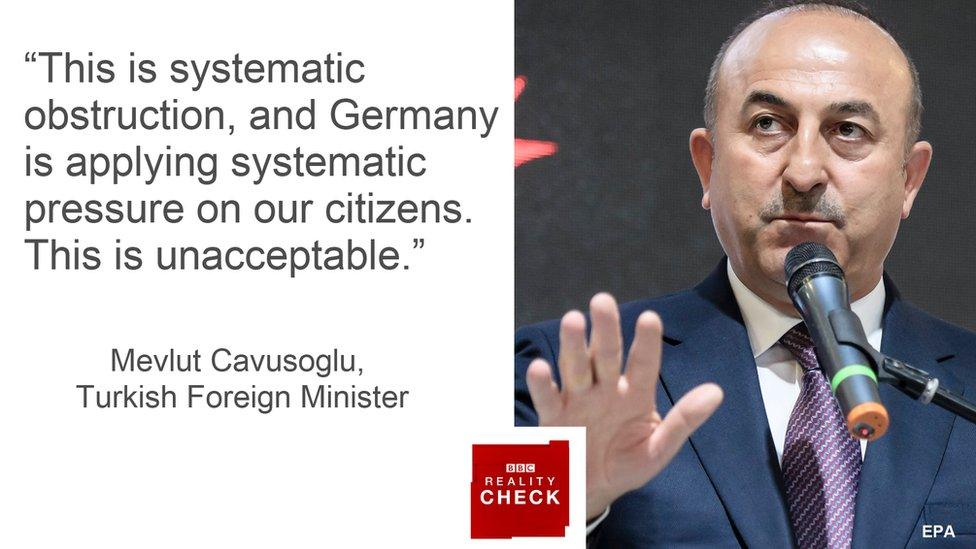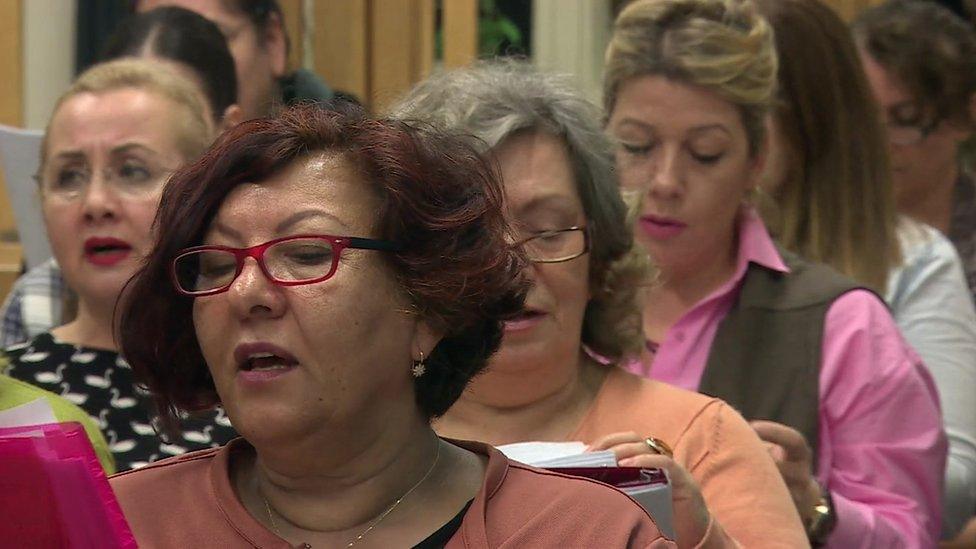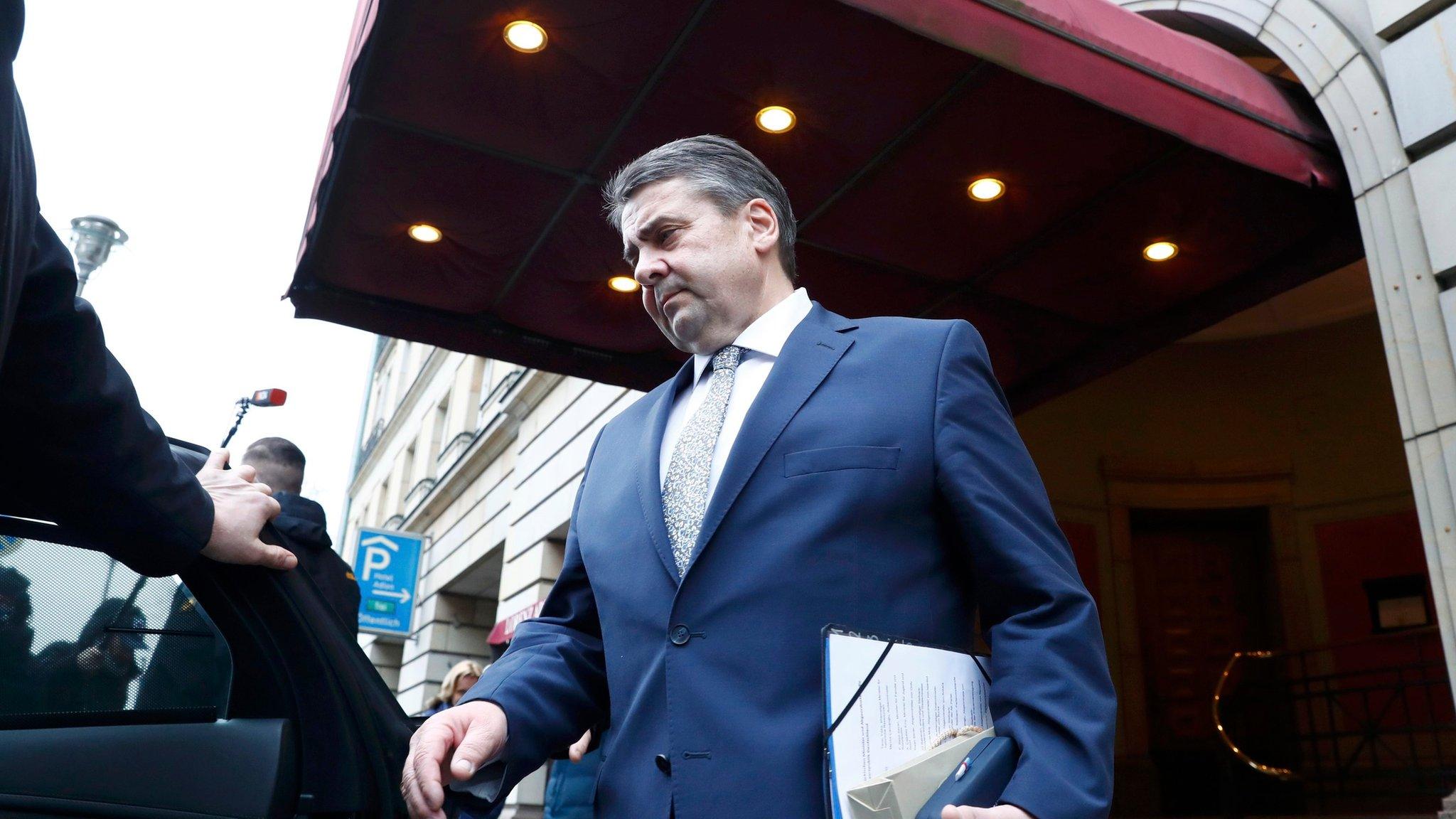Reality Check: Is banning Turkish rallies EU policy?
- Published

The claim: Turkey says bans on its ministers holding political rallies in several EU countries are part of a systematic attempt to prevent them addressing Europe's large Turkish diaspora.
Reality Check verdict: Germany and the Netherlands have banned or obstructed a number of Turkish political rallies in recent days, sparking a furious diplomatic row with Turkey. However, there is no evidence of a pan-EU policy to obstruct the meetings.
In April, Turkey votes on a referendum to change the country's constitution in a way that would greatly enhance the powers of President Recep Tayyip Erdogan.
The country's vast European diaspora is a key constituency for the government. In Germany alone, there are an estimated 1.4 million eligible voters, making it the fourth largest voting bloc after Turkey's three biggest cities. There are also large Turkish populations in Austria, Belgium, the Netherlands and Switzerland.
Many European countries have expressed disquiet at Turkey's response to last July's coup attempt against President Erdogan and a perceived slide towards authoritarianism, with tens of thousands of public officials either arrested or dismissed from their jobs.
At the weekend, citing security concerns, the Netherlands blocked Turkey's family minister from addressing a rally in Rotterdam and escorted her out of the country. Earlier, the Turkish foreign minister was barred from entering by plane. Riots involving Turkish protesters and Dutch police broke out later.
Earlier this month, local authorities in Gaggenau in Baden-Wurttemberg revoked permission for Turkish Justice Minister Bekir Bozdag to address a rally.
A few days later, officials in Cologne did the same for Turkey's Economy Minister Nihat Zeybekci. Both cited security concerns as the reason for the decision. Hamburg officials also banned a rally featuring Turkey's Foreign Minister Mevlut Cavusoglu.
President Erdogan described the bans as "Nazi-style" practices, comments that have drawn widespread condemnation. Turkish government-controlled papers suggested Germany was targeting the president's party while allowing Turkish opposition politicians to hold political meetings.
Crossing the Rubicon
Germany and the Netherlands are not the only countries to have expressed concern at the political rallies for Turkey's 16 April referendum.
Austria's social democrat chancellor said Erdogan's comments had crossed the Rubicon and wanted to ban similar rallies on the referendum in Austria. He has called for a collective EU response to prevent individual countries coming under pressure from Turkey.
The Dutch government has said such rallies are "undesirable". Prime Minister Mark Rutte said: "Dutch public spaces are not the place for other countries' political campaigns."
He added that Rotterdam's city authorities were unlikely to authorise a rally due to be attended by Turkey's foreign minister.
Belgium has said it will leave local councils to decide on the rallies on the basis of security considerations. A meeting in France went ahead over the weekend after local official said it did not pose a threat. Another meeting is slated for Monday afternoon in Strasbourg.
In Switzerland, where Mr Cavusoglu is scheduled to attend a rally, the foreign ministry said his visit did not "currently pose a particularly high security threat".
The EU relies on Turkey to control the flow of refugees over its borders.
The last time EU foreign ministers met they discussed the issue of Turkish political rallies but have not agreed a joint policy on it, despite some calls for an EU-wide rule.



- Published9 March 2017

- Published8 March 2017
